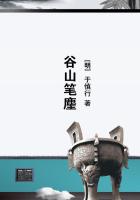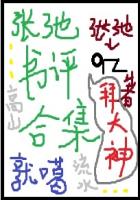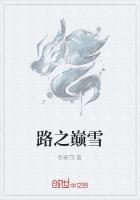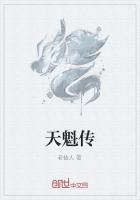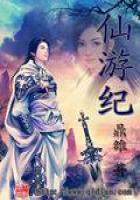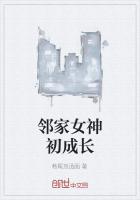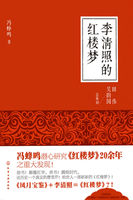The result of the embassy, we see, was not very promising for Charles VIII; so he resolved to rely on his ally Ludovico Sforza alone, and to relegate all other questions to the fortunes of war.
A piece of news that reached him about this time strengthened him in this resolution: this was the death of Ferdinand.The old king had caught a severe cold and cough on his return from the hunting field, and in two days he was at his last gasp.On the 25th of January, 1494, he passed away, at the age of seventy, after a thirty-six years' reign, leaving the throne to his elder son, Alfonso, who was immediately chosen as his successor.
Ferdinand never belied his title of "the happy ruler." His death occurred at the very moment when the fortune of his family was changing.
The new king, Alfonso, was not a novice in arms: he had already fought successfully against Florence and Venice, and had driven the Turks out of Otranto; besides, he had the name of being as cunning as his father in the tortuous game of politics so much in vogue at the Italian courts.He did not despair of counting among his allies the very enemy he was at war with when Charles VIII first put forward his pretensions, we mean Bajazet II.So he despatched to Bajazet one of his confidential ministers, Camillo Pandone, to give the Turkish emperor to understand that the expedition to Italy was to the King of France nothing but a blind for approaching the scene of Mahomedan conquests, and that if Charles VIII were once at the Adriatic it would only take him a day or two to get across and attack Macedonia;from there he could easily go by land to Constantinople.
Consequently he suggested that Bajazet for the maintenance of their common interests should supply six thousand horse and six thousand infantry; he himself would furnish their pay so long as they were in Italy.It was settled that Pandone should be joined at Tarentum by Giorgia Bucciarda, Alexander VI's envoy, who was commissioned by the pope to engage the Turks to help him against the Christians.But while he was waiting for Bajazet's reply, which might involve a delay of several months, Alfonso requested that a meeting might take place between Piero dei Medici, the pope, and himself, to take counsel together about important affairs.This meeting was arranged at Vicovaro, near Tivoli, and the three interested parties duly met on the appointed day.
The intention of Alfonso, who before leaving Naples had settled the disposition of his naval forces, and given his brother Frederic the command of a fleet that consisted of thirty-six galleys, eighteen large and twelve small vessels, with injunctions to wait at Livorno and keep a watch on the fleet Charles VIII was getting ready at the port of Genoa, was above all things to check with the aid of his allies the progress of operations on land.Without counting the contingent he expected his allies to furnish, he had at his immediate disposal a hundred squadrons of heavy cavalry, twenty men in each, and three thousand bowmen and light horse.He proposed, therefore, to advance at once into Lombardy, to get up a revolution in favour of his nephew Galeazzo, and to drive Ludovico Sforza out of Milan before he could get help from France; so that Charles VIII, at the very time of crossing the Alps, would find an enemy to fight instead of a friend who had promised him a safe passage, men, and money.
This was the scheme of a great politician and a bold commander; but as everybody had came in pursuit of his own interests, regardless of the common this plan was very coldly received by Piero dei Medici, who was afraid lest in the war he should play only the same poor part he had been threatened with in the affair of the embassy; by Alexander VI it was rejected, because he reckoned on employing the troops of Alfonso an his own account.He reminded the King of Naples of one of the conditions of the investiture he had promised him, viz.
that he should drive out the Cardinal Giuliano delta Rovere from the town of Ostia, and give up the town to him, according to the stipulation already agreed upon.Besides, the advantages that had accrued to Virginio Orsini, Alexander's favourite, from his embassy to Naples had brought upon him the ill-will of Prospero and Fabrizio Colonna, who owned nearly all the villages round about Rome.Now the pope could not endure to live in the midst of such powerful enemies, and the most important matter was to deliver him from all of them, seeing that it was really of moment that he should be at peace who was the head and soul of the league whereof the others were only the body and limbs.
Although Alfonso had clearly seen through the motives of Piero's coldness, and Alexander had not even given him the trouble of seeking his, he was none the less obliged to bow to the will of his allies, leaving the one to defend the Apennines against the French, and helping the other to shake himself free of his neighbours in the Romagna.Consequently he, pressed on the siege of Ostia, and added to Virginio's forces, which already amounted to two hundred men of the papal army, a body of his own light horse; this little army was to be stationed round about Rome, and was to enforce obedience from the Colonnas.The rest of his troops Alfonso divided into two parties: one he left in the hands of his son Ferdinand, with orders to scour the Romagna and worry, the petty princes into levying and supporting the contingent they had promised, while with the other he himself defended the defiles of the Abruzzi.
On the 23rd of April, at three o'clock in the morning, Alexander VIwas freed from the first and fiercest of his foes; Giuliano delta Rovere, seeing the impossibility of holding out any longer against Alfonso's troops, embarked on a brigantine which was to carry him to Savona.

